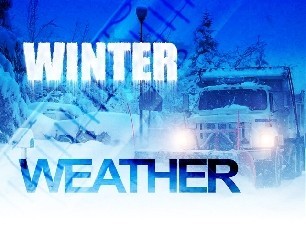From Iowa to New York and Michigan to Georgia, the relentless cycle of snow and bitter cold is testing the strength of the steel-and-cement skeletons on which our communities are built, the patience of the people who live there and the stamina of crews whose job is to keep the roads safe and the taps running.
Even after the weather eases, state and local governments will be left with steep repair bills that could affect their budgets for months to come.
In scores of cities, once-smooth roadways have been transformed into obstacle courses by gaping potholes that can seriously damage passing vehicles but are too large to avoid.
New York City crews filled 69,000 potholes in the first five weeks of the year - nearly twice as many as the same period in 2013. In Iowa, a Des Moines official said the city has never endured so many broken water mains in the 100-year history of its water utility.
Michigan's top transportation official warned that the icy conditions would create more potholes than "we've probably ever seen in our lifetime."
Busted water mains have created the most dramatic scenes - and the greatest challenge for repair crews, who must dig into rock-hard ground to reach pipes that are up to a century old and cannot withstand the pressure created by earth that shifts as it freezes.
On Tuesday, a broken water main in Detroit flooded several blocks, trapping cars that included a taxi. The cab driver had to be plucked out by rescue workers.
"The fireman came and got me out - put me on his shoulder," Michael Hooks said. "Thank you, Detroit firemen."
The western Illinois city of Moline has had 61 water main breaks so far. That's 10 more than anyone there can remember and a staggering number given that the community has just 240 miles of water lines.
The repairs are made all the more difficult by dangerous subzero temperatures that freeze soil down to a depth of 3 or 4 feet.
"The crews out there, their coveralls are freezing solid," said Greg Swanson, general manager of Moline's utilities. At times, their pant legs get so stiff, they can't even bend their knees.
"They get in their trucks to warm up a bit, and they just stay with it," he said.
Because the ground is so rigid, leaking water often does not escape directly above the busted pipe, but travels hundreds of feet before finding a soft spot or an opening, occasionally shooting into the air like a geyser, Swanson said.
Not only that, but the ground is so hard that the same digging machines that can normally expose a pipe in less than an hour have to scrape and claw for 11 hours or more to do the same job.
"The contractors say they've never seen anything like it," said Doug Dunlap, a village trustee in the tiny Illinois community of Lyndon.
Compounding the workers' woes are parked vehicles that are difficult or impossible to move because water that rose to their bumpers has turned to ice.
"We had tires that wouldn't spin because they were in a huge block of ice, and we had to chop the ice until they could get out," said Lenore Joseph, describing a row of cars on her Chicago street that looked like so many bugs trapped by flypaper.
Far less dramatic but especially aggravating are all the potholes, which form after water seeps into cracks in the pavement, turns to ice and expands.
Chicago's potholes are multiplying by the thousands. In just the first six weeks of this year, the transportation department said crews - working around the clock - have dumped some 2,000 tons of patching material into more than 125,000 potholes. The city is almost certain to fill more than the 625,000 potholes patched last year.
The cost of the extra works mounts quickly. In Moline, for example, the team that handles the water mains has in just the last two weeks clocked 300 hours of overtime out of a budget that allotted 1,300 hours for the entire year.
In some areas, the cost of plowing roads and making repairs comes at the exact time when money is drying up. Michigan State Transportation Director Kirk Steudle said an extra $30 million, a third more than budgeted, is needed to pay for the near-constant snowplowing. The cost and usage of salt has doubled in just a year.
Plus, the proliferation of potholes exposes what experts have long said: Many of the nation's roads are in such poor shape that they are more vulnerable to crumbling.
"Many cities have ignored the minor cracks and potholes, and now they're getting big," said Steve Schlickman, executive director of the Urban Transportation Center at the University of Illinois at Chicago.
Not only that, but the rapid repairs may actually make conditions worse.
Munir Nazzal, an assistant professor of civil engineering at Ohio University, led a study that found patching asphalt only stays in place for a matter of weeks, days or even hours before traffic scatters it. And snowplow blades can actually fill potholes with snow, where it melts, seeps into the road surface and freezes.
"They're not solving the problem at all," Nazzal said.
Art Cabello has seen that for himself.
"It's really bad out there," said Cabello, manager of a Chicago tire shop that is welding far more broken rims than he can ever remember. "The other day I welded a rim and 20 minutes later the customer drove by and hit" another pothole right in front of the shop. The axle broke, and the car had to be towed away.

http://accesswdun.com/article/2014/2/271096
